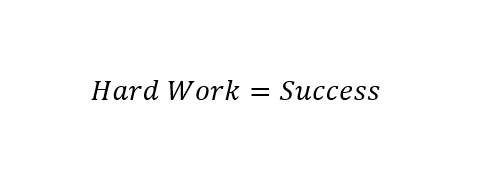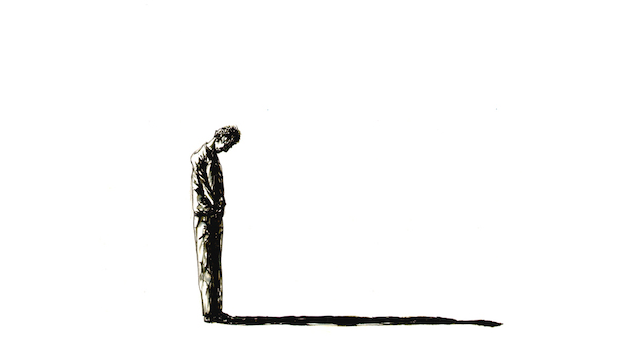
As detailed in my post from July 8, I have committed to reading a book every month. My book for July was Malcolm Gladwell’s Outliers. I recently finished the book (I started it in June), and I must say it was amazing.
Outliers is a book about success, more specifically it is about why certain individuals or groups are able to achieve success while others are not. Gladwell supports each of his claims about success with research from psychologists as well as examples of success such as Microsoft founder Bill Gates.
The book is fabulously written and filled with engaging stories from history. Gladwell does an excellent job at writing content that is both enjoyable and informational.
In this post I will detail some of the major lessons I learned from reading the book.
1. Success is Not Just About Hard Work
Our culture teaches us that success is the product of one thing: hard work. All you have to do is pull yourself up by your bootstraps and you’ll find success. But what if it isn’t that simple?
In the first chapters of Outliers, Gladwell explains how much opportunity plays into success. He argues that success is not simply the product of how hard you work, but also of what kind of opportunities and privileges you are afforded by society.
My favorite example of this is Bill Gates, who is one of the most successful entrepreneurs of our era. Many of us know that Gates created innovative computer software and started the technology giant Microsoft. What many don’t know is that Gates was afforded several special opportunities as a child.
Gates began computer programming at the age of thirteen and had access to programming tools adults of the time could only dream of. He was able to put in hours of practice that others in his field had no access to.
He was also born at the perfect time, right when major changes were happening in the area of computer technology.
If Gates had not been afforded these opportunities, it would be impossible for him to be as successful as he is today.
Due to this fact, I think it is important that each of us alter our definition of success. Here’s our current definition in the form of a mathematical formula:

Now here’s our new definition of success in a similar format:

This is a more sober and honest definition of success. One that helps explain success in a world where not everyone is treated equally or afforded the same privileges.
Here’s a short quote from the book that sums this point up well:
“Success is not a random act. It arises out of a predictable and powerful set of circumstances and opportunities…” p. 155
2. Practice is Vital
In chapter 2 of Outliers, Gladwell introduces something he calls the 10,000-hour rule. Basically, the what Gladwell says is that it takes 10,000 hours of deliberate practice in order to become an expert in any field.
Although there has been researching that debunks Gladwell’s rule (more on that here), the principle still holds weight.
It is one thing to be given amazing opportunities to be successful, it is another to make the most of those opportunities.
In order to become great at anything, you have to put in the time and effort to improve.
Sports are an excellent example. To improve at a sport, let’s say basketball, you need to put in the time to hone your skills. You must continue to perfect your shooting form and ball handling. You will never become a great basketball player until you put in the time and effort required to improve.
This principle is also true of writing, which is why I try to spend time every day practicing my craft. If I want to be the best writer I can possibly be, I have to practice my writing intentionally and for an extended period of time and on a consistent basis.
3. Talent is a Myth
Let’s return to basketball for a moment.
When we see great players achieving great feats we call them talented. But is talent really behind their success as a basketball player?
Well let me ask you this. Think of the greatest basketball player you know, it could be a professional player or someone you know on a personal level, now think about how long they’ve been playing basketball. Probably since they were five or six or possibly even younger.
Because they have put so much time into the game of basketball, it shouldn’t be a surprised that they are so great.
At the same time, you are more likely to be a great basketball player if you’re tall. But is being tall the same thing as being talented? Tallness is not a talent, it’s a genetic trait. It’s not a choice… it’s a… privilege, or maybe even an opportunity.
Many great basketball players have also been granted special opportunities like playing in summer leagues or on youth all-star teams, where they can learn from better coaches and practice against better players.
Point being: there is no genetic trait that will make you great at basketball. There’s no such thing as being born to play. There are only opportunities and hours of practice that lead to skill and ability.
Another theme Gladwell touches on is IQ. He shares that there are individuals with sky high IQ’s that are poor and miserable while there are individuals with low IQ’s that are happy and/or wealthy.
Although IQ is solely genetically based (you can’t change it) it still does not determine what level of success you will have.
4. The Definition of Fulfilling Work
There are a few points in Outliers where Malcolm Gladwell mentions this idea of meaningful work. Although it is not necessarily one of the key points of the book, it was a major takeaway for me.
To get an idea of what meaningful work means, here’s a quote from the book:
“Those three things – autonomy, complexity, and a connection between effort and reward – are, most people agree, the three qualities that work has to have if it is to be satisfying.” p. 149
Here’s another:
“It’s not how much money we make that ultimately makes us happy between nine and five. It’s whether or not our work fulfills us.” p. 149-150
According to Gladwell, fulfilling and satisfying work consists of three things: autonomy, complexity, and connection between effort and reward.
When we think about our dream jobs, they always consist of those three things.
We want:
- Control over our own destiny (autonomy)
- Something with variety that will not bore us (complexity)
- Something that will keep us working hard, even when we don’t feel like it (the connection between effort and reward)
The crazy thing is, the amount of money we make does not determine whether or not we find our work satisfying. It isn’t about the dollar amount, it’s about whether or not we find our work meaningful.
5. The Importance of Cultural Backgrounds and Legacies
In the last few chapter of Outliers, Gladwell speaks of cultural legacies. He shares that where we come from (our family and cultural background) matters.
For example, have you ever wondered why Asians are so good at math (at least according to the stereotype)?
Gladwell argues that the answer can be found by looking back at the history of Chinese agriculture.
In China, family’s grow rice on their farms. They extremely work hard to keep weeds out and even have to wake up early in the morning to care for their rice crops.
Their culture of hard work can be summarized in the following proverb:
“No one who can rise before dawn three hundred sixty days a year fails to make his family rich.”
Gladwell argues that this type of thinking, the work ethic and endurance of Chinese workers, is what contributes to their proficiency in math.
He argues that hard work is ingrained in Asian culture. Asians are good at math because they choose to put the work in to understand. And they choose to put the work in because that is the way they’ve been taught to live and act.
It is important to be aware of other’s backgrounds and cultures, especially here in the U.S. where there is so much diversity. Learning to respect and understand other cultures is vital to success in the business world and in personal relationships.
Closing Thoughts
Outliers was nothing short of excellent. It changed the way I view success and helped me to realize how much of a role circumstance and opportunity play into success.
It is a book I would highly recommend. As I mentioned in the introduction to this post, it is entertaining while at the same time being informative, and at times even transformative.
If you’ve read Outliers, what were some things that you took away from it? How much of a role do you think opportunity plays into success? Do you buy into the idea that talent is a myth?
Have any book recommendations?
Continue the discussion in the comments!














